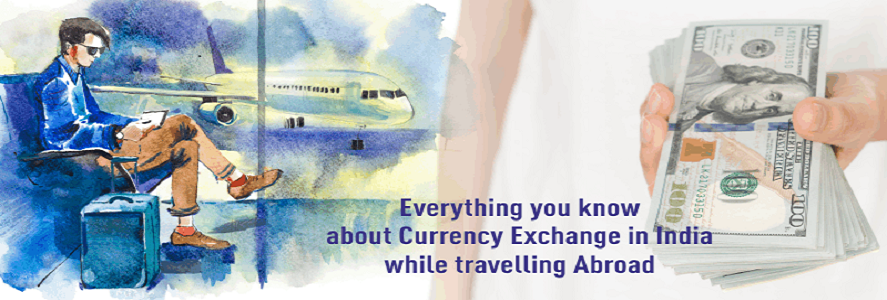How to Exchange Foreign Currency While Traveling From India

Summary: Going overseas soon?This guide helps you get your money sorted smart .Orient Exchange guides you through safe, reliable currency exchange for international travel, ensuring transparency, optimal rates, and a seamless financial experience abroad.
No matter where you are, the power of money is absolute. Currency conversion is a process that cannot be avoided, especially if you are traveling abroad. Cash, credit cards, Foreign Currency, and traveler's cheque are just a few options to transport your money abroad.
You can easily carry big amounts of money safely with a forex card, depending on your needs and financial situation. Due to the lack of card acceptance in many locations, cash is also essential. You may effortlessly swap your money and use the desired medium, from traveler's checks to multi-currency cards. Just be cautious to spread out your payments so you don't run into any problems in an emergency.
Customers can exchange one currency for another at a Currency Exchange, which is a legally permitted establishment. At a teller station, which can be located in a variety of locations including airports, banks, hotels, and resorts, currency exchange for actual money (coins and paper bills) is typically done over the counter. Before going to the currency exchange, there are a few things to think about.
Conduct research:
Do your homework to prevent being taken advantage of by scammers or local vendors, and be sure to be aware of the current currency rates. No matter which money exchangers you select, be sure to verify the conversion fees and services they provide. While they provide the greatest conversion rate, be warned that after the daily withdrawal limit has been exceeded, an international transaction fee is applied.
- Make a good plan: the day before your departure, exchange your currencies: People typically have all of their reservations and travel plans made well in advance of their trips. Despite the fact that some people might not have the time, make sure to get your money ready at least a few days before you go. A minimum of three days prior to your departure date should be allowed for currency conversion. Make careful to keep an eye on the exchange rates for a few days, especially in the case of strong currencies, to confirm whether they are declining. Strong currency exchange rates can change drastically, and if they do, you could find yourself at a loss abroad.
- When making a purchase, compare currency rates: The currency rates you receive will vary based on the Foreign exchange merchant. Before getting your cash exchanged, make sure to compare several merchants. At least three or four different merchants' rates should be compared. There are several vendors to choose from, so pick the one that best fits your needs. Some of them allow you to compare several quotes provided by other licensed money changers in order to select the best choice.
- Bring both cash and a card: When traveling abroad, using the 30/70 strategy is one of the greatest strategies to prevent any loss. This refers to the practice of taking 30% of your total currency as cash and the remaining 70% on your currency travel card. However this ratio may vary depending on the country of visit and your expense plan. Every time a payment is required, you can pay with the cash component first and use the remaining funds afterward. If you prefer a better rate than cash, you can easily obtain a Forex card, which is widely used and accepted globally. The rate can be maintained even if it fluctuates while you're traveling because you can load the card with the desired value in advance.
- Consult a cambio that has been authorized by the RBI: They gain from the fact that nobody needs an account with them in order to buy or sell foreign money, unlike banks. Banks are more expensive to use than money exchangers. They, therefore, provide alluring exchange rates to draw clients. Almost every major city or town in India has a money-changing establishment. But keep in mind that every money changer has an RBI license.
- Don't exchange currency at airport shops: The commission rate, which can range from 10 to 15% in most international airports, is a very expensive option. Airports aren't the only places to exchange money abroad; most places charge high fees. Make sure to convert enough money at home, then, to avoid paying the commission, which could cost you a lot of money. The same applies to hotels and train stations overseas; each of these establishments assesses a very high fee, frequently at a lesser rate.
- Avoid using your debit or credit card outside of the country: It costs a lot of money to use your debit card while traveling, ranging from 4-5%. When you do it, three fees are assessed against you. Unless you enjoy wasting your money, it is advised not to do that.
- Traveler's checks should be avoided: Traveler's checks have their place in the past. And for this reason alone, you ought to refrain from bringing your foreign currency in a Traveler's check. It may not be accepted everywhere. And those who do will be charged ranging from 3 to 5%.
- Bringing things to a close: No matter how you decide to transport your money abroad, don't forget to purchase travel insurance for your trip. Things like theft, mugging, etc. can leave you helpless and broke with few options. Your insurer will provide you with rapid assistance and safeguard your safety if you ever require financial support during such an emergency.
• · ✦ · • Article Ends Here • · ✦ · •
Contact Us